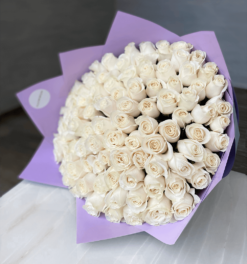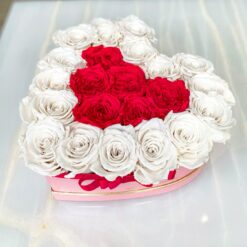It is believed that fresh flowers are not a practical gift: bouquets can lose their attractiveness within a few days after purchase, and keep the freshness of plants in a vase for longer, it seems, an impossible week. However, with proper care, the freshly cut composition will not wither even ten days after purchase. To do this, you need only a few universal rules that can extend the life of any plants. And the bouquet, which includes persistent flowers, retained its freshness and charm even several weeks after purchase.
Carnations
These flowers remain fresh for 2-3 weeks: the cooler the room in which the bouquet is located, the longer the composition will stand in the vase. Carnations also need clean water, so it is advisable to change it every day. It is better not to keep these plants in the same container with flowers of another variety: carnations secrete substances that have a detrimental effect on the neighbors in the vase. Like chrysanthemums, carnations are persistent outdoor flowers: they will last longer without water than other plant varieties.
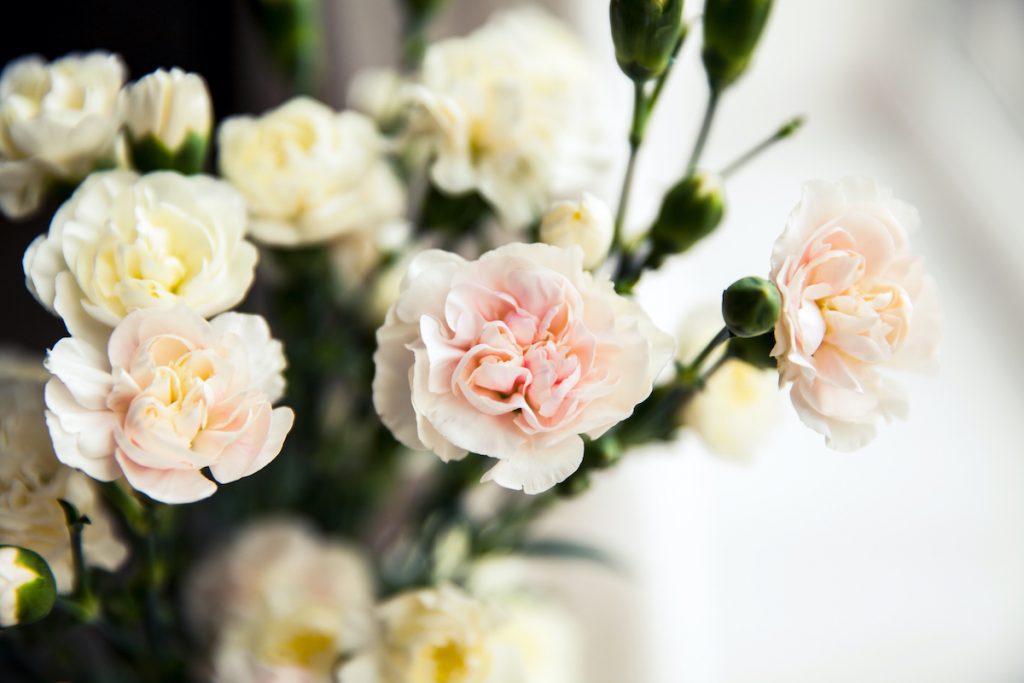
Orchids

Freesias
Freesia twigs with graceful inflorescences are an excellent choice for a long-lasting bouquet: these plants delight the eye with freshness for up to two weeks. Caring for them is simple: daily change of water and location away from sunlight and heating appliances. Freesias love water at room temperature, and the stems can be shortened by 1 cm before immersion.
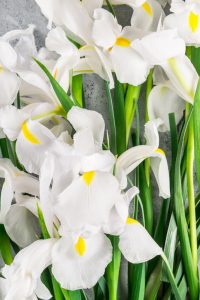
Chrysanthemums
Chrysanthemums are the most persistent flowers, capable of standing in a vase for up to four weeks when left. Cut plants are unpretentious: caring for a bouquet of chrysanthemums consists in changing the water daily, cutting the stems and washing the container in which the composition is located. If plaque has formed on the stems, they also need to be washed.
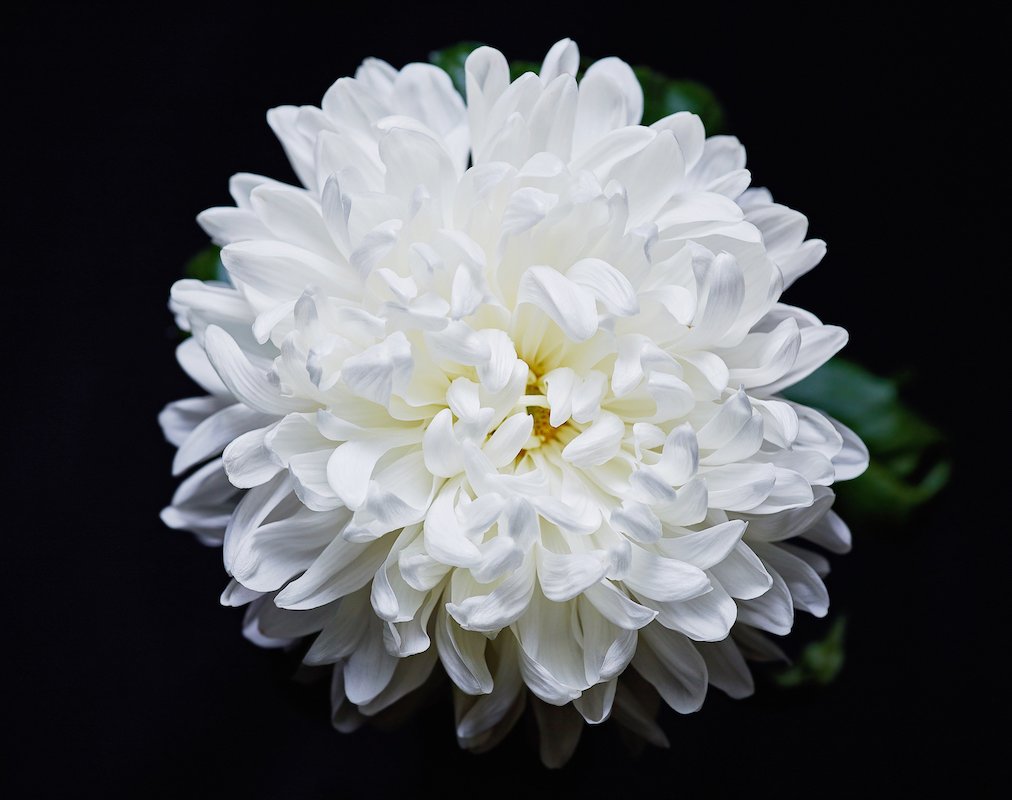
Irises
Irises stay fresh for two weeks if you remove excess leaves before submerging them in water. The nutrient solution needs to be changed daily, and the stems of the plant should be trimmed by about a centimeter every day. It is undesirable to leave irises without water, even for a short time: while you are changing the contents of the vase, carefully put the bouquet on the table and wrap it with a damp cloth.
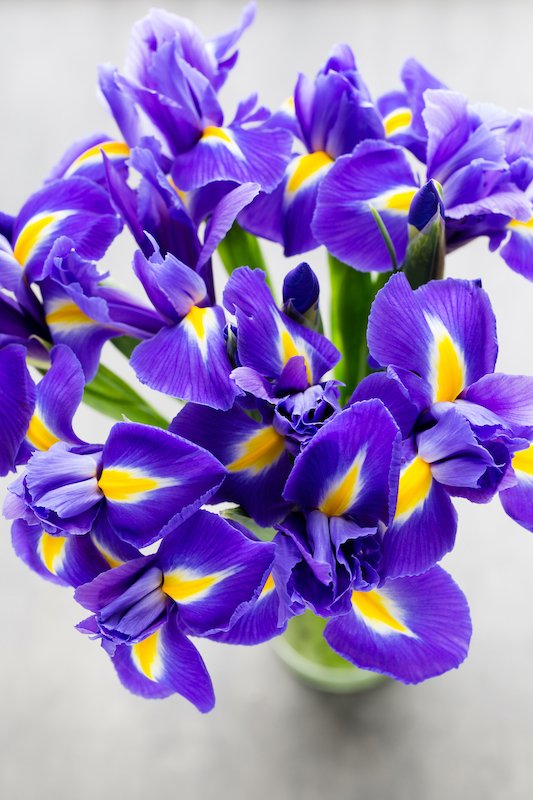
Callas
In those countries where white is associated with purity and solemnity, strict snow-white calla lilies are often used as the most persistent flowers for a bride’s bouquet. These plants are able to maintain their fresh appearance without water, but after a whole “dry” day, even calla lilies cannot be reanimated one hundred percent. Squeezing and deformation negatively affects the vitality of these flowers, therefore, it is better to choose spacious deep vases for their content.
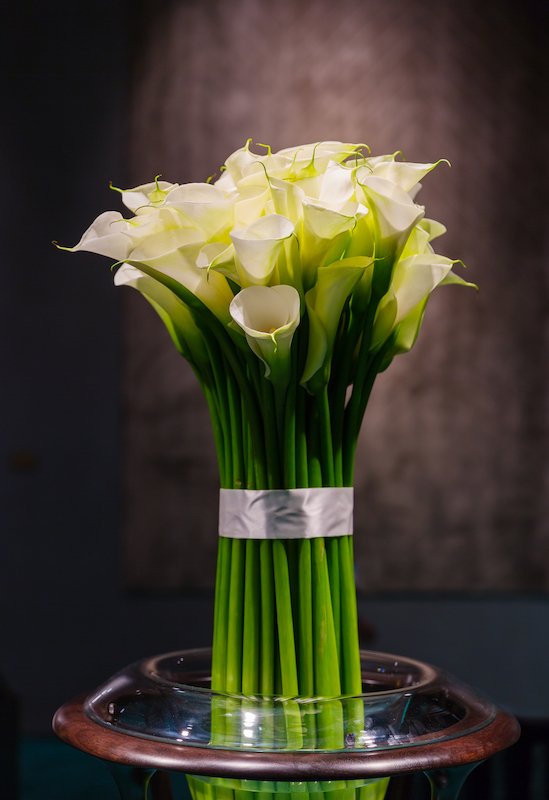
Tulips
These spring flowers keep their freshness easily for ten days. Trim the stems of the tulips at an angle and place the plants in a tall vase that will keep them upright. Tulips love cold water and do not like heat at all, so it is better to place a container with them away from sunlight and heating appliances. The flower keeps perfectly in a vase, both alone and in the vicinity of other plants (with the exception of daffodils).

Roses
Depending on the species, a rose can stand in a vase from one to two weeks. Due to the variety of varieties, these flowers are often used in wedding arrangements. Most roses love coolness. The water in the vase with them needs to be changed to filtered water daily, the sections on the stems should be updated every two days, and the buds can be sprayed. The lifespan of the plant increases the removal of thorns and lower leaves.
Persistent summer flowers for a bouquet
The resilience of summer plants lies in their ability to withstand heat, not in their ability to do without water. Persistent summer flowers include lilies, daisies, ranunculus, hydrangeas and sweet peas. These plants get along with each other both when composing compositions and in mono bouquets.
General rules for flower care
In order for plants to delight you with their fresh appearance for a long time, regardless of their natural resistance, adhere to a few simple rules:
• carefully examine the bouquets before buying to make sure they are fresh flowers that have withered will not last longer than a week, even with careful care;
• cut the stems with a sharp knife, not scissors, so as not to damage the capillaries of the plant;
• immerse bouquets only in settled water;
• fill the container in which the bouquet will stand, up to about half the volume; • immerse the composition only in a thoroughly washed container.

